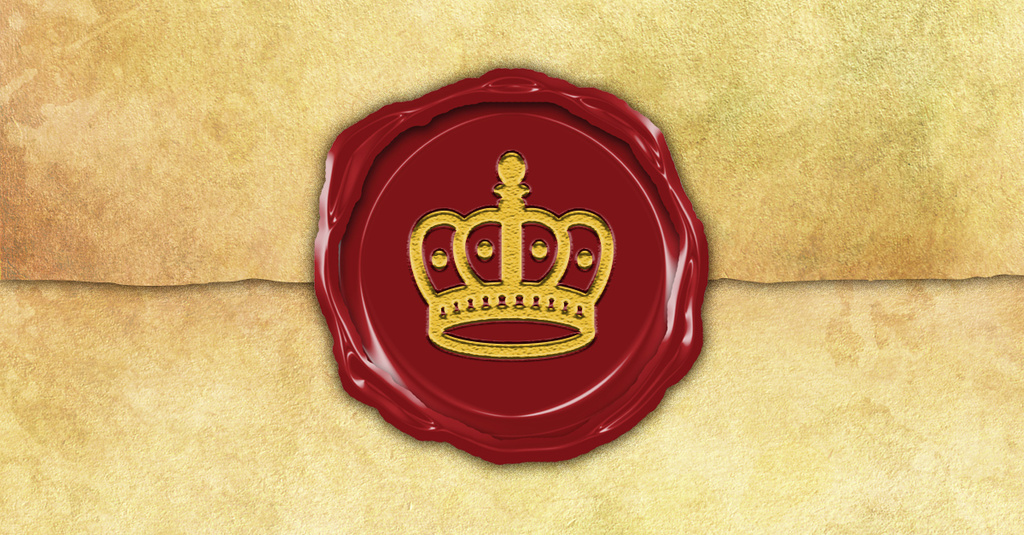One of the most powerful ideas in the modern world is the social contract doctrine. According to this theory, at one time, in the early history of mankind, society did not exist. All men lived in a state of anarchism. Every man was his own law and state, and men lived in a world without any ties between men other than of their own choosing. This state of nature proved to be limiting, inconvenient, and dangerous, and so men came together to subscribe to a social contract whereby all would be governed. Every man would surrender some freedom in return for mutual protection and a great security under a coercive contract which would give civil freedom to replace anarchic freedom.1
When Rushdoony says something is “one of the most powerful ideas in the modern world,” we should make careful note of it, because it just may open our eyes to something significant. The “social contract doctrine” is so important because it is the foundation to humanistic statism. This is vital right now because that contract may be unraveling, and that could mean a great opportunity for Christian Reconstruction.
The social contract is essentially man’s covenant with other men in order to produce a stable, secure society, and if you want to find the roots of modern statism, you’ll find it in the social contract. Although it has origins going back to the Greeks, we tend to address its more refined expression in Locke and Rousseau. Their versions are important because they involve the individual giving up certain freedoms in order to protect the rights of all. Hence the expressed need of civil government to ensure and protect those rights.
The Collapse of the Lockean State
The basis for Locke’s idea of the social contract was in the protection of property rights which meant that the state’s power was limited because it could not itself violate private property. This is all an idealistic notion since the state routinely violates property rights, and those citizens too poor to own property support a more powerful state in order to enforce a greater redistribution of wealth, i.e., the property of others.
Politicians have long recognized this class warfare and much of modern politics has been about exploiting the disgruntlement of the lower classes; but this has come back to bite the state. Since the lower classes have little in terms of property, the Establishment focuses more upon “rights” in general, but this created what Rushdoony refers to as the “anarchistic and amoral citizen.” He saw this as leading to an overall breakdown:
In our time, we are seeing the growing collapse of the Lockean state. It has abandoned its property base, and its limitation on power, in favor of the individual member of the social contract and his “rights.” The result is the growing dissolution of society as the anarchistic and amoral citizen and the highly centralized and authoritarian state clash with one another. The state insists on ever increasing power to remake man and society, and anarchistic man insists that his view of human rights gives him the right to take to the streets in civil disobedience whenever his thinking so determines and orders the rightness of things. The Lockean state now has power, but it lacks legitimacy. Whether in its Marxist or democratic forms, the Lockean state rests on sand, and its citizens are increasingly its enemies.2
This is a telling description of our times as we witness the growing divide between the authoritarian state and the anarchistic, amoral citizen. The modern citizen, who was taught to seek rights before duty is now taking “to the streets in civil disobedience whenever his thinking so determines and orders the rightness of things.” Modern man learned that there was no greater will than the will of the people:
Because the general will has replaced God’s will, there is a shift of emphasis from man’s duty to God to man’s rights. Rights having replaced duties, the focus of society has shifted from production to consumption. Man lives as a consumer, not as a creature made in the image of God and required to serve Him with all his heart, mind, and being. It is not God who must be served but man and the state.3
The Era of Dissolution
The anarchistic, amoral drive of modern man is elevated by the growing distrust of civil government, the media, and even the church. Amoral is the key word here as we witnessed the state sanction of gay marriage and now the accepted discussion regarding the obliteration of genders. This was unimaginable not too long ago. Morality is now off the rails.
All this is leading to a myriad of mini-revolutions instigated by rights-driven people who feel they must create a new social contract, and they will use whatever means to do so. They are discarding history, tradition, political parties, and faith in order to remake man in a new image:
The spirit of revolutions has been this urge to create a new contract between men.4
The modern revolutionists think too much of themselves and such a goal as a new social contract is near impossible at this point. They will not create an upheaval of the system. Their revolutions will only lead to what Rushdoony calls an “era of dissolution.”
All modern political systems are now in crisis. Humanism has triumphed the world over. In some areas, ancient forms of paganism have eroded, with resulting political instability. In the West, the age of revolution is being followed by an era of dissolution.5
Restoring the Kingdom Contract
As negative as all this may sound, it does represent an opportunity for Christian Reconstruction to help fill the gap between the Christian citizen—who is also disillusioned—and the state. The Christian Conservative movement essentially lost the culture war, but the end result has been the overall weakening of the Lockean state. As Rushdoony noted, it still desires power, but is has lost legitimacy.
This is why we must work to turn the attention of Christians away from exclusively political solutions—rejecting the social contract doctrine—and towards the Kingdom Contract. What is the Kingdom Contract? It’s the covenant of God who owns all things:
According to Scripture, God entered into covenant with man and gave man from the beginning the law of the covenant, so that the covenant is an act of both grace and law. Man’s life is covenantal, i.e., bound to a law treaty with God; man is bound, in a sense, to a contract that is given to him by God and which man has no choice but to obey or to be judged a rebel.6
The goal of the covenant and law is the advancing of God’s Kingdom, and the contract is laid out for us in our Lord’s Sermon on the Mount where we are told to produce the good works that would glorify God (Matt. 5:16); seek first His Kingdom and righteousness (Matt. 6:33), and we are provided a simple, oral outline of what this contract spells out—one that we can recite and pray daily:
Our Father which art in heaven, hallowed be thy name. Thy kingdom come. Thy will be done in earth, as it is in heaven. Give us this day our daily bread. And forgive us our debts, as we forgive our debtors. And lead us not into temptation, but deliver us from evil: for thine is the kingdom, and the power, and the glory, for ever. Amen. ~ Matthew 6:9-13
The Lord’s Prayer: Marching Orders for Godly Dominion
We hallow the name of God by the light of our good works—since it causes men to glorify God—and we manifest His Kingdom by doing His will on earth as it is in heaven. We do more than simply pray for daily bread; we also work to become the answer to that prayer by utilizing the Lord’s tithe to create alternative charitable work to that of the state. We walk in forgiveness with one another knowing that our power is found in our love for another, and we work to restore the doctrine of Biblical restitution.
With evil, we go beyond petitioning God for deliverance from evil by becoming an answer to that prayer ourselves in driving out evil by our good works according to God’s law.
Lastly, we recognize that in all this we are merely stewards and trustees. It is His Kingdom that we extend; it is His power that enables us, and it is for His glory that it is done. The Lord’s Prayer is so much more than a confession. It’s our contract with God, and the very fact that it’s delivered via a prayer demonstrates how holy and personal it is:
The Lord’s Prayer gives us marching orders for dominion. As such, the early church took it seriously enough to use it daily lest any forget their priorities as Christians. Indeed, The Didache required the “thrice daily” use of the Lord’s Prayer.7
The rift between state and citizen must be filled with God’s Kingdom, and although the world wants nothing to do with God and His rule, there is a great host of disillusioned Christians looking for a way forward during these dark times. The Chalcedon Foundation is perfectly positioned to reach such believers, and we ask that you help us do that.
As we approach the end of the year, your financial support is desperately needed right now to help Chalcedon plan and provide for our 2018 budget. We are only here after 52 years because of the generous giving of our individual supporters. Remember, your financial gifts are tax-deductible, but the greater benefit is knowing that you are supporting the mission that best represents your Christian values and mission.
1. R. J. Rushdoony, Systematic Theology in Two Volumes (Vallecito, CA: Ross House Books, 1994), p. 403.
2. R. J. Rushdoony, Sovereignty (Vallecito, CA: Ross House Books, 2007), p. 445.
3. Sovereignty, p. 267.
4. Systematic Theology, p. 403.
5. ibid., p. 404.
6. ibid., p. 403.
7. R. J. Rushdoony, Sermon on the Mount (Vallecito, CA: Ross House Books, 2009), p. 83.

- Chalcedon Editorial
